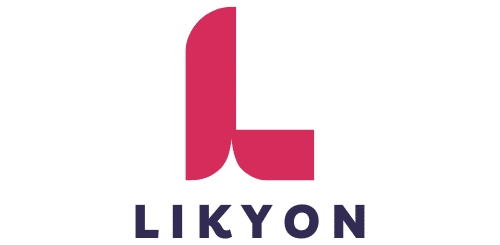In this fast-paced digital age, technology and social media have become integral parts of our everyday lives, effectively influencing the way we learn and communicate. However, are these tools being fully utilised in the realm of education, specifically language learning in UK schools? This article will explore how schools can leverage social media platforms to enhance students’ language learning journey, fostering a more engaging and interactive classroom environment.
Understanding the Role of Social Media in Education
Social media’s role in education is steadily growing, transforming the traditional classroom into a more interactive and engaging space. Let’s delve into what social media brings to the table in the educational sphere.
Cela peut vous intéresser : Tips for managing exam anxiety
Social media platforms such as Facebook, Instagram, and Twitter aren’t just for sharing selfies and memes. In fact, these platforms can be instrumental in bridging the gap between the classroom and the real world. They provide a multimedia-rich environment conducive to language learning, offering a broad array of resources such as videos, podcasts, articles, and discussion threads.
Social media also fosters a culture of collaboration and communication among students and teachers. It facilitates peer-to-peer interaction, enabling students to share ideas, give feedback, and work collaboratively on projects. Furthermore, it keeps the lines of communication open between students and teachers, allowing for more personalised and immediate feedback.
A lire en complément : What’s the Impact of Virtual Reality on UK’s Architectural Design Processes?
Incorporating Social Media into Language Learning Strategies
How exactly can social media be woven into the fabric of language learning strategies in UK schools? Let’s delve into the specifics.
One of the most straightforward ways to integrate social media into language learning is by creating class pages or groups on platforms like Facebook or WhatsApp. These online spaces can serve as extensions of the classroom, where students can post assignments, discuss class materials, and engage with their peers in the target language.
For instance, teachers can encourage students to post in the target language, sparking discussions and interactions that provide valuable practice outside of the classroom. For more advanced learners, teachers could organise online debates on relevant topics, fostering critical thinking and analytical skills.
Additionally, social media platforms like Instagram can be used for visual vocabulary learning. Teachers can post pictures related to the lessons and ask students to comment with the appropriate word or phrase in the target language. This not only reinforces vocabulary but also promotes a sense of community and shared learning among students.
The Power of Online Communities in Language Learning
Online communities have a significant influence on language learning. Let’s explore how they can be utilised effectively in UK schools.
Social media platforms present an abundance of online communities dedicated to language learning. These communities provide a safe and supportive environment for learners to practice their language skills, ask questions, share learning resources, and provide mutual support.
Participating in language learning communities on platforms like Reddit can help students immerse themselves in the target language, exposing them to native speakers and various linguistic styles. This can significantly boost their confidence and proficiency in the language.
Moreover, these communities often organise language exchange programs, where learners can pair up with native speakers to practice conversational skills. These interactions can provide invaluable cultural insights, further enriching the students’ language learning experience.
Potential Challenges and Solutions in Implementing Social Media in Language Learning
While the potential of social media in language learning is vast, it’s not without its challenges. However, with proper strategies and guidelines in place, these challenges can be effectively managed.
One of the primary concerns when it comes to using social media in education is ensuring a safe and respectful online environment. To address this, schools need to develop clear social media policies, setting out guidelines for acceptable online behaviour. Regular monitoring and moderation of online activities is also crucial to prevent cyberbullying and ensure that the discussion remains relevant and respectful.
Another challenge is the potential for distraction. While social media offers a plethora of educational resources, it’s also rife with distractions that can derail students from their learning objectives. Teachers can help mitigate this by providing structured tasks and guidelines, and ensuring that the use of social media is purposeful and directly related to learning objectives.
Despite these challenges, the potential benefits of integrating social media into language learning in UK schools are enormous. With the right strategies in place, social media can truly transform the language learning experience, making it more interactive, engaging, and relevant to the digital age.
Leveraging Social Media for Listening and Speaking Practice
The interactive nature of social media makes it a perfect tool for improving students’ listening and speaking skills in a foreign language. Let’s see how it can be implemented in UK schools.
Podcasts and YouTube channels in the target language offer a wealth of listening practice opportunities. Schools can create curated lists of suitable podcasts or videos and share them with students through social media platforms. Students can then interact with the content at their own pace, leave comments, ask questions and discuss the content with their peers. This not only improves their comprehension and listening skills, but also enhances their ability to express themselves in the target language.
For speaking practice, live video platforms such as Facebook Live, Instagram Live, or Twitch can be used to organise interactive sessions where students can practice their speaking skills in real-time. For instance, teachers can host a live Q&A session, a presentation, or a debate in the target language, and students can participate by speaking or typing their responses. This provides a low-pressure environment where students can practice their oral skills, receive immediate feedback, and learn from their peers.
Another useful tool for improving speaking skills is VoiceThread, a social media platform where users can upload images or videos and add voice comments. This can be used for various language learning activities, such as narrating a story, explaining a concept, or expressing an opinion, all in the target language.
Conclusion: Embracing Social Media for Language Learning in the 21st Century
In the era of digital connectivity, social media has emerged as a powerful tool for enhancing language learning in UK schools. Its interactive nature fosters a culture of collaboration, communication and community, creating a more immersive learning environment that bridges the gap between the classroom and the real world.
From facilitating peer-to-peer interaction and offering a multimedia-rich learning environment to providing opportunities for listening and speaking practice, social media brings a multitude of benefits. However, it’s imperative for schools to establish clear policies and guidelines to ensure a safe, respectful and distraction-free online learning environment.
By integrating social media into language learning strategies, schools can promote active learning, engage students in meaningful conversations, foster critical thinking skills, and expose them to diverse linguistic styles and cultural perspectives. This not only enhances students’ language proficiency, but also equips them with digital literacy skills necessary for the 21st century.
In conclusion, while challenges exist, the potential of social media in language learning cannot be ignored. With careful planning, clear objectives, and constant monitoring, social media can truly transform language learning in UK schools, making it a more dynamic, engaging, and relevant experience for the digital age learners.






